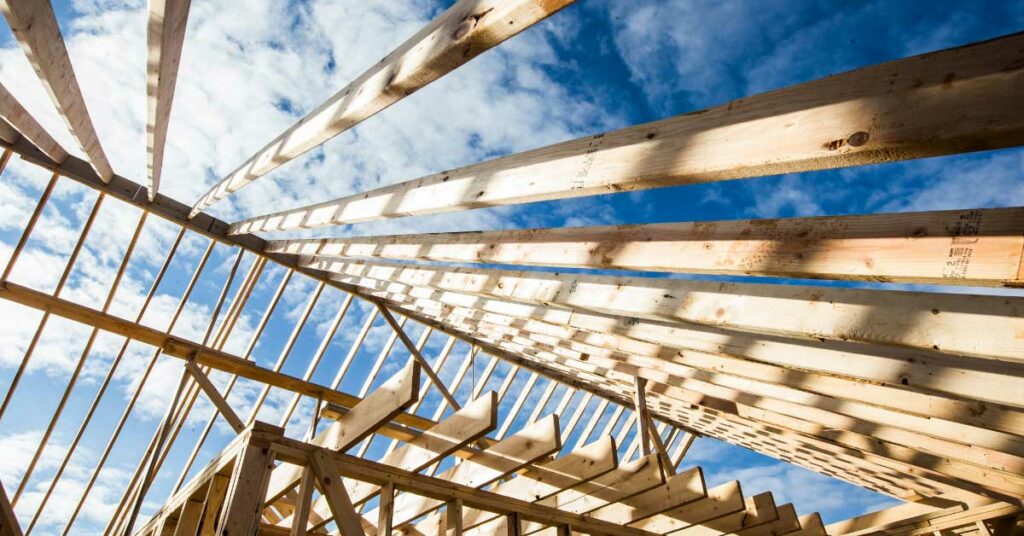Unlocking the Potential of Manufactured Housing in Rural Areas
The potential of manufactured housing in the American rural landscape is an amalgamation of stunning vistas, hard-working people, and rich traditions.
However, it’s also where the housing affordability crisis is acutely felt, with a severe lack of affordable and quality homes available.
Manufactured homes present an exceptional opportunity for rural America, offering a high-quality, cost-effective solution to its housing needs.
This blog explores how the potential of manufactured housing can be unlocked in these rural areas.

Understanding Manufactured Housing
Manufactured homes, once referred to as mobile homes, are residential structures built entirely in a controlled factory environment, adhering to the federal HUD Code.
Their benefits include affordability, speed of construction, and a controlled building environment, which ensures consistent quality. With models ranging from simple single-section homes to spacious multi-section designs, manufactured homes cater to a spectrum of needs and budgets.
The Potential in Rural America
In rural America, where distances are vast and resources often scarce, manufactured homes could be a significant housing solution. Here’s why:

Affordability
In areas where incomes are often lower than national averages, affordability is crucial. Manufactured homes typically cost less per square foot than traditional stick-built homes, making them an accessible option for many rural families and seniors on fixed incomes.
Quality and Energy Efficiency
Modern manufactured homes offer high-quality construction with improved energy efficiency. For rural homeowners who face higher energy costs, an energy-efficient manufactured home can lead to substantial savings over time.
Speed and Ease of Construction
In remote areas where attracting construction labor can be challenging, the factory-built nature of manufactured homes is a significant advantage. Homes can be constructed off-site and then transported, reducing the time and logistical challenges associated with traditional on-site construction.

Overcoming the Barriers
While the potential is significant, manufactured housing in rural America faces barriers that need to be addressed:
Financing Challenges
Although affordable, financing for manufactured homes can be problematic.
Many are titled as personal property instead of real estate, making loans for manufactured homes more similar to car loans than traditional mortgages.
This leads to higher interest rates and shorter loan terms, making them less affordable over time.
Zoning and Land-Use Restrictions
In some rural areas, zoning regulations and land-use restrictions can limit where manufactured homes can be placed. These regulations can make it more difficult for rural residents to take advantage of this affordable housing option.

Perception Issues
Despite significant advancements in quality and design, manufactured homes still face stigma and misconceptions.
The perception of manufactured homes as being of inferior quality or as temporary housing can discourage potential homeowners.
The Path Forward
To unlock the potential of manufactured housing in rural America, these challenges must be addressed:
Innovative Financing
To make manufactured homes more affordable over the long term, the industry and policymakers must work together to develop innovative financing solutions.
This could include changes to federal lending laws or the creation of new lending products specifically designed for manufactured homes.
Zoning Reform
Zoning and land-use reforms are needed to allow more flexibility for manufactured homes.
By relaxing restrictions and expanding the areas where manufactured homes can be placed, rural residents can have more housing options.

Public Education
The industry must continue to educate the public about the benefits of modern manufactured homes.
This includes showcasing their quality, durability, and design, as well as sharing stories of satisfied homeowners.
Final Thoughts
Manufactured housing holds enormous potential for addressing the housing challenges faced by rural America.
With their blend of affordability, quality, and convenience, they offer a viable solution to the lack of affordable housing options.
Unlocking this potential will require overcoming financing and regulatory hurdles and changing public perception.
But with concerted effort and collaboration among stakeholders, manufactured homes can transform rural housing, providing a vital lifeline for rural communities across the country.
About the Author
Anequim is your strategic partner in the Manufactured Homes Community sector, providing skilled, bilingual virtual assistants that cater to MHC owners, investors, Property Managers, and Property Management companies.
With specialized services ranging from leasing calls to property maintenance coordination, accounting, and more, Anequim’s comprehensive approach is uniquely designed to support the varied needs of the MHC industry. Their dedicated team expertly handles recruitment, learning and development, performance management, creating tailored solutions that drive efficiency and success in your community.
Visit Anequim today to discover how their Remote Professionals can enhance your operations and investment in the Manufactured Homes Community.
